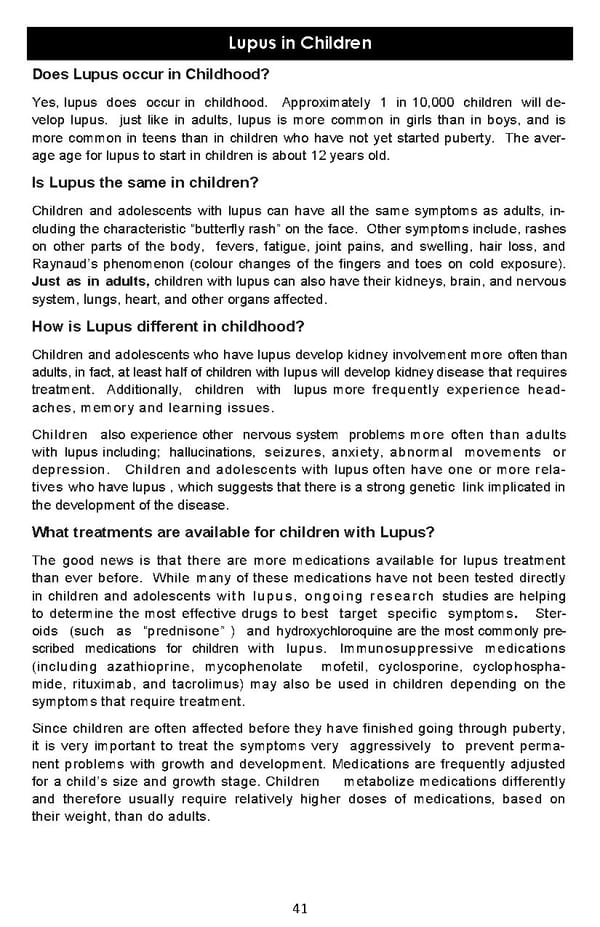Lupus in Children Does Lupus occur in Childhood? Yes, lupus does occur in childhood. Approximately 1 in 10,000 children will de- velop lupus. just like in adults, lupus is more common in girls than in boys, and is more common in teens than in children who have not yet started puberty. The aver- age age for lupus to start in children is about 12 years old. Is Lupus the same in children? Children and adolescents with lupus can have all the same symptoms as adults, in- cluding the characteristic “butterfly rash” on the face. Other symptoms include, rashes on other parts of the body, fevers, fatigue, joint pains, and swelling, hair loss, and Raynaud’s phenomenon (colour changes of the fingers and toes on cold exposure). Just as in adults, children with lupus can also have their kidneys, brain, and nervous system, lungs, heart, and other organs affected. How is Lupus different in childhood? Children and adolescents who have lupus develop kidney involvement more often than adults, in fact, at least half of children with lupus will develop kidney disease that requires treatment. Additionally, children with lupus more frequently experience head- aches, memory and learning issues. Children also experience other nervous system problems more often than adults with lupus including; hallucinations, seizures, anxiety, abnormal movements or depression. Children and adolescents with lupus often have one or more rela- tives who have lupus , which suggests that there is a strong genetic link implicated in the development of the disease. What treatments are available for children with Lupus? The good news is that there are more medications available for lupus treatment than ever before. While many of these medications have not been tested directly in children and adolescents with lupus, ongoing research studies are helping to determine the most effective drugs to best target specific symptoms. Ster- oids (such as “prednisone” ) and hydroxychloroquine are the most commonly pre- scribed medications for children with lupus. Immunosuppressive medications (including azathioprine, mycophenolate mofetil, cyclosporine, cyclophospha- mide, rituximab, and tacrolimus) may also be used in children depending on the symptoms that require treatment. Since children are often affected before they have finished going through puberty, it is very important to treat the symptoms very aggressively to prevent perma- nent problems with growth and development. Medications are frequently adjusted for a child’s size and growth stage. Children metabolize medications differently and therefore usually require relatively higher doses of medications, based on their weight, than do adults. 41
 Living Well With Lupus Facts Booklet Page 40 Page 42
Living Well With Lupus Facts Booklet Page 40 Page 42